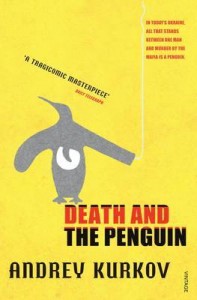 Title: Death and the Penguin (Goodreads)
Title: Death and the Penguin (Goodreads)
Series: The Penguin Novels #1
, 1996
Pages: 228
Buy: Amazon, Book Depository, Kindle (or visit your local Indie bookstore)
Viktor Alekseyevich Zolotaryov is an unemployed aspiring writer struggling to live in a post-soviet society. He has aspirations to write novels but a job writing obituaries conveniently fell into his lap. Viktor’s job is to prepare obituaries for notable Ukrainian figures. However he quickly found out he was being assigned to write obituaries of the enemies of an unknown organisation, using the newspaper as a front. He is now trapped in a situation and there appears to be no escape.
The title of this book refers to Viktor’s job and his pet king penguin, Misha. The Kiev zoo had run out of money and could no long afford to support or feed the animals. Their solution was to give the pets to any citizen able to feed them in the hope they will care for the animals. Andrey Kurkov uses Misha to mirror Viktor Zolotaryov. An existential look into life imitating art and the balance between life and death.
Death and the Penguin is a dark comedy and political satire that portrays a bleak post-Soviet Ukraine to the reader. Kurkov takes a pragmatic approach with exploring morality. The idea of writing a mournful article in case a politician or socialite dies suddenly in exchange for money offers a morbid look at mortality but that is not enough for Andrey Kurkov and he wants to talk about politics and corruption. “People have got used to the corruption. People here are flexible and they accept the new rules and don’t dwell on moral questions. They just watch what everyone else is doing and try to find their own ways of deceiving others to make money for themselves to survive”
The Kiev Kurkov portrays is one driven by greed and corruption. A place where bribes have to be handed out before an ambulance will come and take a dying man to hospital. However, once at the hospital the staff can offer no medicines to ease the pain, let alone a cure. A place where money rules and the gangster underworld are offering a practical solution into solving corruption. Turning this society into a place where organised crime and political corruption seem to be ruling in tandem.
What really stuck with me was the parallels between Viktor and Misha’s life. Starting from struggling to feeling trapped, Misha’s life mimicked Viktor’s own life. Also Misha helped provide a contrast with Victor’s plot; exploring ideas of life and death simultaneously. While people are dying due to the hit list, Viktor struggles to keep Misha alive in an environment that is not suitable for a king penguin. These parallels and contrast make up the back-bone of the book and what really cemented my love for this novel.
Death and the Penguin is a wonderful satire that combines elements of the surreal and existential. I really enjoyed the dark comedy and the themes Andrey Kurkov explored within this novel. There is a sequel to the book called Penguin Lost which I plan to read but I have no idea how this story could continue. As part of my Russian lit project, I plan to explore a lot more post-Soviet literature and if this is anything to go by, I know I will discover some great novels.

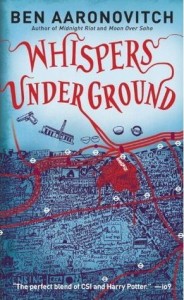 Title: Whispers Under Ground (
Title: Whispers Under Ground ( Title: Round Ireland with a Fridge (
Title: Round Ireland with a Fridge (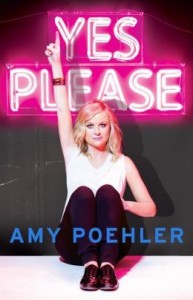 Title: Yes Please (
Title: Yes Please (
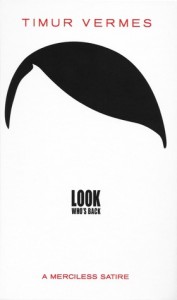 Title: Look Who’s Back (
Title: Look Who’s Back (
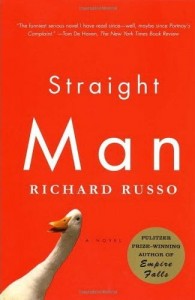 Title: Straight Man (
Title: Straight Man ( Title: The Monk (
Title: The Monk (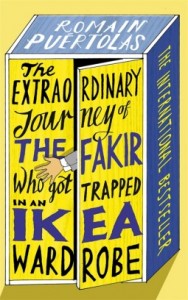 Title: The Extraordinary Journey of the Fakir Who Got Trapped in an Ikea Wardrobe (
Title: The Extraordinary Journey of the Fakir Who Got Trapped in an Ikea Wardrobe (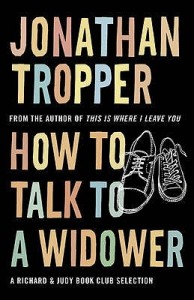 Title: How to Talk to a Widower (
Title: How to Talk to a Widower ( Title: The Last Girlfriend on Earth and Other Love Stories (
Title: The Last Girlfriend on Earth and Other Love Stories (